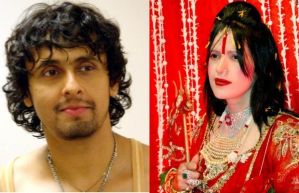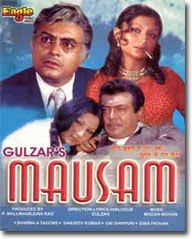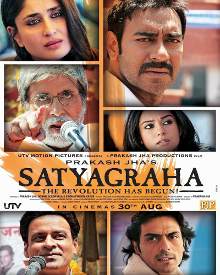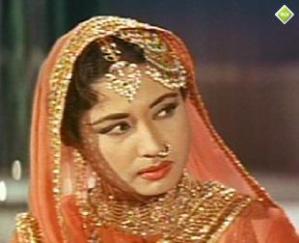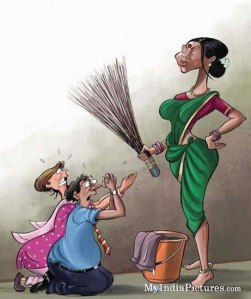
“Baaki sab to theek hai, par humein chik-chik pasand nahi bibiji,” declared my new maid after ensuring that everything else including the breed of my dog was of her choice. The “chik-chik” she had referred to, meant something way different from what I had thought it to be. After a week of her stay at my home as a full-time domestic help, certain definitions related to houselhold chores were updated in my vocabulary. Presenting a new Code of Conduct for the employers of the modern Shanta-Baayis and Ramu Kakas, which is much efficiently implemented than any other legislation in India:
a) Chik-Chik : Forget the older definition of the term which suggested usual quarrels on trivial household issues. These days, the term is not just interpreted rather strictly, but is a matter of great offence to the maids. The list of Do’s and Don’ts that you often expect your domestic help to follow might be taken as an interference in their seemingly perfect job, especially if it is related to their all time favourite activities, like watching T.V. and talking on cellphone. So, never say “never”.
b) Chhutti: Well, this term might seem to be too familiar but there is a considerable change in the demands for holidays that the modern domestic helps expect you to understand. Don’t be shocked if the list of holidays they want exceeds that of the Gazetted Holidays. The wedding of “Bhola”, their childhood friend is far more important than the Republic Day. You dare not refuse them the permission to visit their village for a week or two. Apart from that, you are not allowed to get annoyed at their sudden absenteeism which is likely to happen atleast 5 times a month.
c) Full-time maid: If you are still interpreting the term as “somebody who does all household work and is at your service almost the entire day”, then here’s a bad news for you. A “Full time” domestic help stands for “somebody who supervises other part-time maids at your home.” Yes! You have to have more than two or three separate maids for dusting, washing the dishes, cleaning, cooking etc. The reason is simple: There is a lot of work and the full time maid needs time for herself too. She is too busy with her cellphone or the latest episode of some soap opera.
d) Perks: Oh! Yes. You got that right. The modern domestic help wants better perks than a Government officer. The monthly pay totally excludes things like gifts that you are supposed to give them on various festive occasions, at least a pair or two of clothes every month and if the maid stays at your place, then not only the necessities but also luxuries like branded soaps and shampoos have to be provided by you. And don’t you dare act smart by buying them comparatively cheaper stuff, as that would lead to extra salt in your curry or some unbaked vegetable served to you.
2.Some important advice:
a) Buy some patience if you lack it or else the maid will eventually make you buy some.
b) Be extremely polite every time you talk to them, even if the maid has just spoilt the vegetable because she was busy worrying about the protagonist of her favourite serial who had met with an accident.
c) The most important device in the lives of today’s generation of domestic helps is their Cellphone. Talking to their Best friend, Chachaji, Buaji, Mausaji or Jijaji is much more important than cooking dinner or washing the dishes. You are not allowed to get irritated even if s/he has been talking for more than an hour and it’s already 1 am in the night. You might not get to sleep properly, but then that’s better than doing all the household work on your own, isn’t it?
d) No restrictions, whatsoever. That includes letting them sleep whenever they are tired of gossiping about you with the maid-next-door, permission to visit the weekly “mangal bazaar or shukr bazaar” with their “good friends”, letting them watch their favourite daily soap the timing of which clashes with that of your favourite T.V. show etc.
3. Punishments:
a) Rigorous imprisonment for an indefinite period of time: Not abiding by any of the above mentioned rules might get you into a difficult situation, especially if you are into a nine to five job. Apart from doing all household chores all by yourself, you might also have to cancel some important meetings and remain confined to the four walls of your house most of the time.
b) Long term effects: Don’t expect a new maid to agree to work at your place very easily. Your previous maid would have circulated the tales of your “utterly annoying and torturous” behaviour among all other maids of the locality, faster than a local daily. Your new image in the locality would be of an ever complaining, annoying employer who finds a reason to find a fault in them every now and then.
c) Miscellaneous Losses: This list is endless. You got late for the meeting with your Boss because you forgot that the milk on the burner was boiling, and by the time you realized that, it was a little too late. The unpressed shirt you wore on your first date left a very bad impression on your latest crush. You forgot to put the air conditioner off because you were in a rush and by the time you came back from office, your house in Delhi was colder than the one in Shimla and the electricity bill for the month was more than your wife’s shopping bills.
In an era where getting a husband or wife is easier than getting a domestic help, most of the urban households are facing trouble dealing with such issues, especially the working women. It’s not as if there is no flip side to the coin and the domestic helps are not exploited by the employers, but then, that does nothing to the woes of those who are actually courteous and nice to them. The exclusion of domestic helps from the Labour Laws is a major reason for this trouble. A new legislation solely for the domestic helps is under consideration by the Government which is aimed at fixing minimum wages, working hours and other such conditions for this sector.
It is hoped that the legislation would provide the much needed uniformity in the age old Master-Servant relationship and come as a relief to both the employers and the domestic helps.
Till then, we the employers, must solemnly resolve to abide by the above mentioned code.


